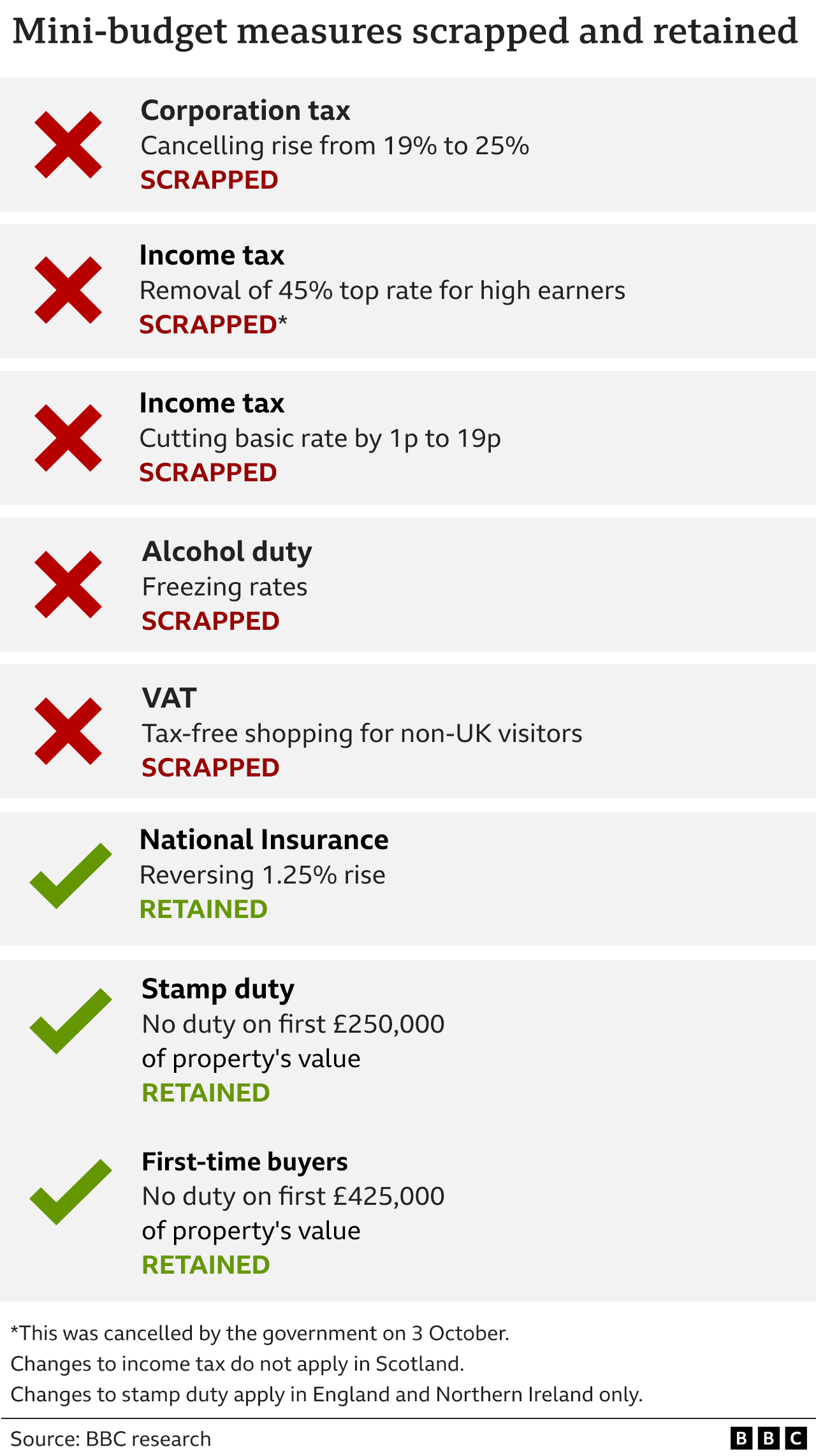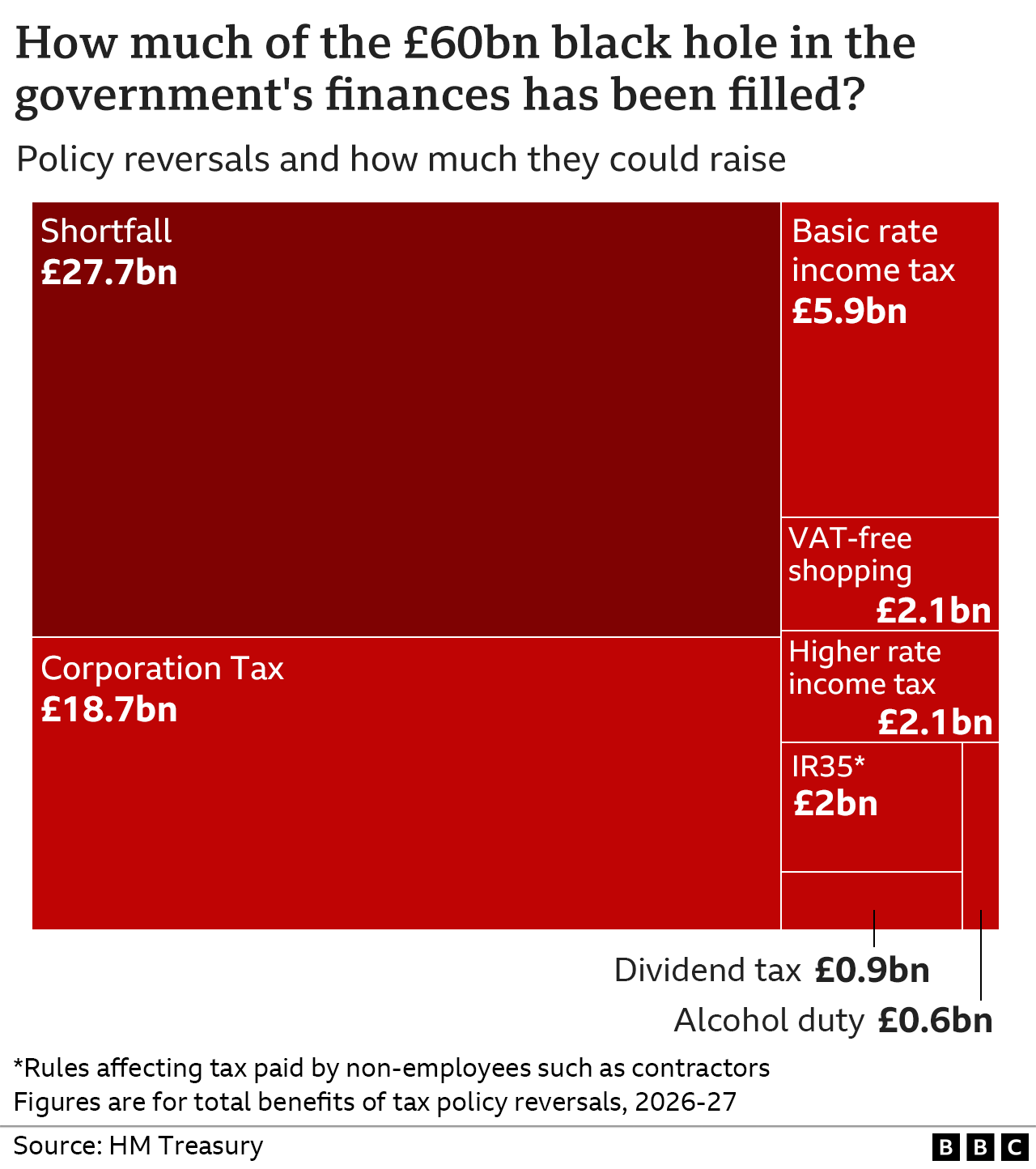” We are living in one of the strangest periods in history where the Government introduces a number of tax measures one day and then reverses those same measures a few days later. This results in uncertainty for the markets which is not a good thing.”
Quote from Nigel Holland
Details about the new plan from the Government
The government will reverse almost all tax measures announced in its mini-budget.
Plans to cut the basic rate of income tax to 19% have been shelved and support for energy bills scaled back.
The mini-budget was only unveiled on 23 September, but caused turmoil on financial markets.
Income tax – basic rate
What was announced:
- The basic rate was to be cut to 19% from April 2023. The government said this would save 31 million people £170 a year
- People in England, Wales and Northern Ireland pay 20% on any annual earnings between £12,571 to £50,270
- The rate was already due to be cut in 2024, but this was brought forward
What has changed:
- The basic rate of income tax will remain at 20%
- Cutting it has been put on hold “indefinitely”
Income tax – higher rate
What was announced:
- 45% rate of income tax for earnings over £150,000 abolished for England, Wales and Northern Ireland taxpayers
- One single higher rate of income tax of 40% from April next year
What has changed:
- The government had already U-turned on the cut to the higher rate, which is no longer going ahead
Corporation tax
What was announced:
- Cancel UK-wide rise in corporation tax which was due to increase from 19% to 25% in April 2023
What has changed:
- Ms Truss had already announced that UK corporation tax will go up from 19% to 25% in April 2023 after all
Energy bills
What was announced:
- The government said a typical household using both gas and electricity would pay £2,500 annually for two years. It announced this before the mini-budget
What has changed:
- The energy price guarantee now only covers this winter. I will be in place until April next year
- A Treasury-led review will look at what measures should be put in place after this date

IR35 rules
What was announced:
- The government had promised to change the rules on off-payroll working, known as IR35, so companies were no longer responsible for ensuring their contractors were paying the right amount of tax.
- It said the current system created “unnecessary complexity and cost” for businesses.
What has changed:
- This reform, which the government said would have cost £2bn a year, will no longer go ahead.
What else has been cancelled?
Other measures that have been cancelled include:
- VAT-free shopping for overseas visitors, which the government said would cost £2bn
- A freeze on alcohol duty, which would have cost £600m
- Cuts to the tax paid on shareholders’ dividends. An increase introduced in April will stay in place, saving about £1bn

What measures are staying?
Measures announced in the mini-budget that have not been cancelled include:
National Insurance
- Reverse recent rise in National Insurance (NI) from 6 November
- Workers and employers have paid an extra 1.25p in the pound since April
- New Health and Social Care Levy to pay for the NHS will not be introduced
Stamp duty
- Cut to stamp duty which is paid when people buy a property in England and Northern Ireland
- No stamp duty on first £250,000 and for first time buyers that rises to £425,000 – comes into operation today
- 200,000 more people will be taken out of paying stamp duty altogether, government claims
Benefits
- Rules around universal credit tightened, by reducing benefits if people don’t fulfil job search commitments
- Around 120,000 more people on Universal Credit to be asked to take steps to seek more work, or face having their benefits reduced
- Jobseekers over 50 to be given extra time with work coaches to help them return to job market
Contact David Crossley
- 102/104 Widnes Road, Widnes, Cheshire, WA8 6AX
- 0151 420 6666
- david@hollandandcompany.co.uk
- Find us on map
- Contact Form
Recent Blog Entries
- 27 Oct 2022Mini-Budget u turn” We are living in one of the strangest periods in history where the Government introduces a n...
- 16 Mar 2022Tax when you sell propertyYou may be liable to pay Capital Gains Tax if you make a profit (‘gain’) when you sell (or...
- 10 Jan 2017Good excuse for being late submitting your tax return ?With the 31 January tax return deadline just around the corner, HMRC has revealed the ‘Top 10 oddest...
Twitter Feed

David K Crossley CTA, ATT
Member of the Chartered Institute of Taxation

